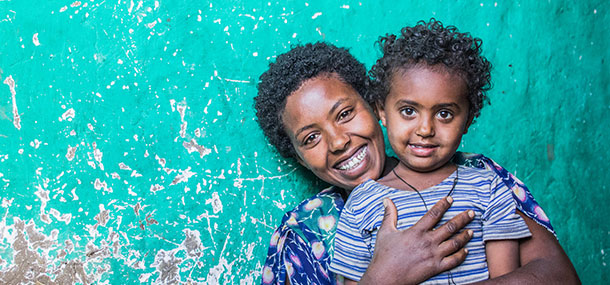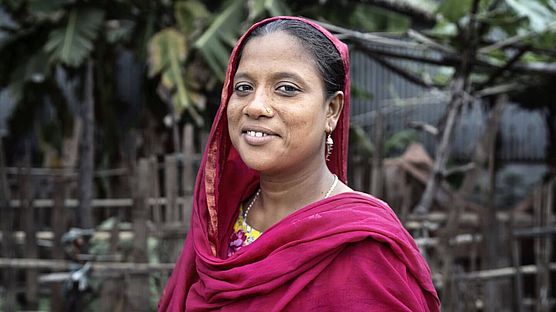
Sieben Briefe an die G7
Sieben Frauen haben an die Staats- und Regierungschefs der G7 geschrieben, um aus erster Hand zu zeigen, wie sich die drängendsten Krisen der Welt auf Frauen und Mädchen auswirken.
Sieben Frauen haben an die Staats- und Regierungschefs der G7 geschrieben, um aus erster Hand zu zeigen, wie sich die drängendsten Krisen der Welt auf Frauen und Mädchen auswirken.
1 - Badia aus Afghanistan
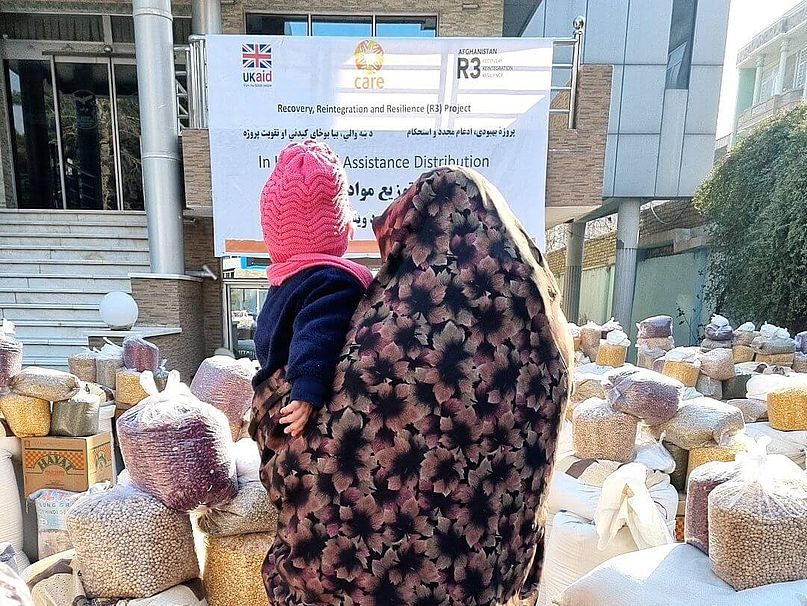
To G7 World Leaders,
Each week I watch as food prices soar. Conflict in our region and globally has disrupted our food supply, meaning the basics that we rely on are now completely unaffordable. Potatoes have doubled in price over the past few weeks and just one small packet of oil is now 50 Afghani (approx 45p).
I’ve always loved cooking and eating a good meal with family. But now I can barely put together a meal. I ration the oil as much as I can and reduce the portions I serve. But I often go without a meal so my children and mother-in-law have enough to eat.
I have three children who haven’t seen their father in over two months. My husband could not find a job here and has been forced to look for work in Iran. It breaks my heart that my family can’t be together.
Food scarcity has already pushed us to crisis point. I now rely on the support of charities like CARE International. Without the food I get from them, I don’t know where I would turn to or how I would feed my family. Tonight, I will cook bread for my children from the flour I received today, along with rice and red beans. But I truly fear for the coming months and the idea that I may have nothing to cook for my children.
When G7 world leaders meet, I ask that they think of families like mine.
No mother should have to put their children to bed hungry.
Yours faithfully
Badia*, Herat Province, Afghanistan
*name changed
2 - Daria aus der Ukraine
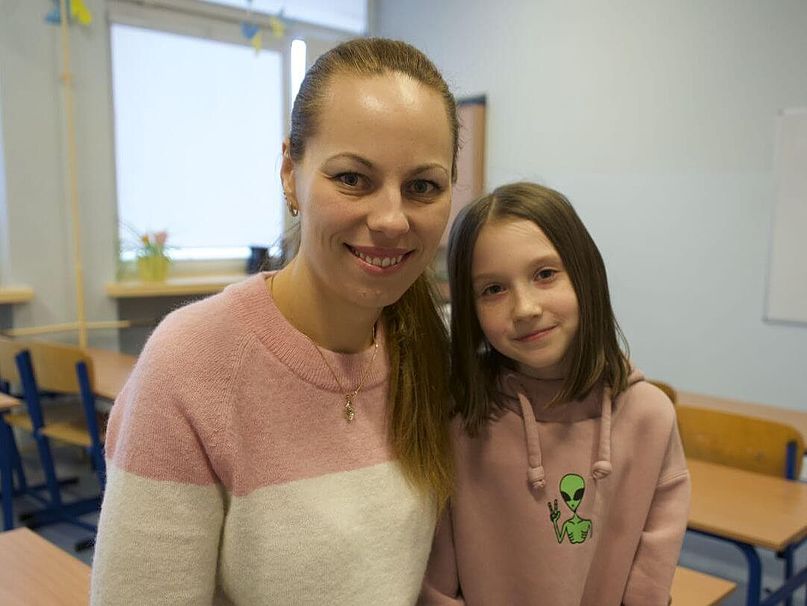
Dear G7 leaders,
Three months ago, I went for a morning run in my home city of Kyiv. That was the last time I would feel normality.
A friend called: “It’s happened - they are bombing Kyiv.” Within 20 minutes, I had my ten-year-old son, two cats, clothes and documents in the car. Fleeing for our lives.
My mum joined us, but dad stayed to defend his city. We left without him. We queued for hours at the border, reaching Moldova at 3am. The stress gave my mother heart issues, hospitalising her. The moment she was strong enough we continued 2,000km to Poland, where friends were offering help.
The people here are so open and friendly. One woman told us: “I have an apartment, you can live there. I will not take any money from you.” She came with mattresses, pillows and kindness. In the face of the very worst of humanity, we have found the very best here. This is not only my story. So many Ukrainians have the same experience. The Polish people work hard, it’s not an easy life but they are ready to share everything with us.
I found a job working for CARE, helping other refugees. It gives me joy. We support them with food, clothes, shelter, education, jobs. 90% of Ukrainian refugees are women, most have children and some of the risks they face are unthinkable. Yet the women come together, helping each other and sending food and medical supplies to family and communities remaining in Ukraine. It is not only men who are fighting – the women are in a battlefield of our own. The worry is exhausting, but we fight on. And we need your help.
Ukrainians will thank the world for the rest of our lives for their support. But the countries with the most refugees, countries along Ukraine’s border, are not the richest countries yet they have taken in most refugees -3.5 million in Poland alone. The people have opened their hearts and homes, but they have needs too. I ask you, G7 leaders, to offer them more support.
Many Ukrainians are risking their lives, returning to Ukraine because of a lack of money. They can’t pay for accommodation, food, public transport. I understand why Poland can’t cover everything for so many. But support from other countries would make a big difference. Please continue to support vulnerable refugees from Ukraine without existing support systems. I never thought I would be a refugee, but now I see the great need for relief for refugees worldwide, no matter which crisis they are fleeing.
Yours faithfully
Daria Khrystenko, Warsaw, Poland
3 - Adenike aus Nigeria
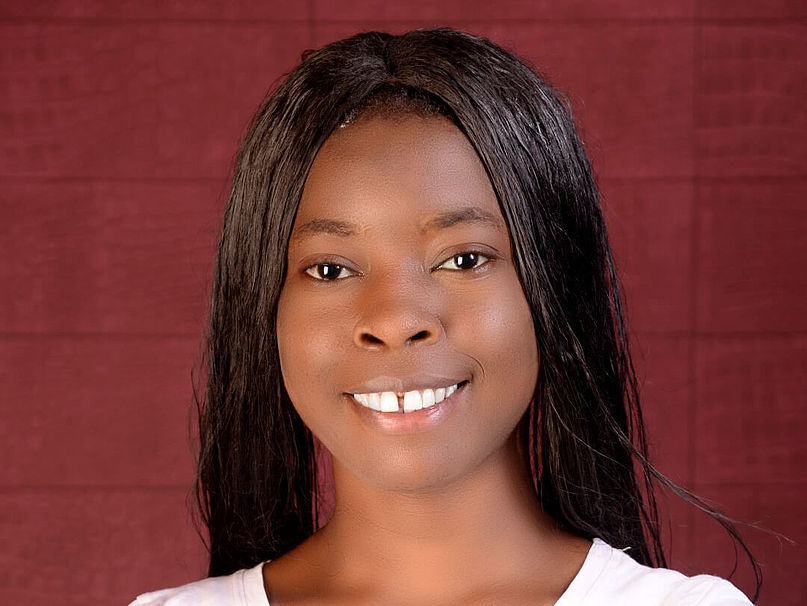
Dear G7 leaders
As you gather for the 45th meeting of the G7, I want to ask you two things; how far have you gone in closing the gap between action and words? And how many women will this time sit at the decision-making table to ensure there is action on the crucial issues of our day?
Twelve years ago, at a United Nations climate summit in Copenhagen, you made a significant pledge - a promise of developed countries collectively providing US$100 billion a year by 2020 to developing nations, to help them adapt to climate change and mitigate further rises in temperature. This promise has never been kept and more lives and livelihoods continue to be lost. From a recent IPCC AR6 Report, we know it’s getting worse.
In May 2021, you also launched the G7 Famine Prevention and Humanitarian Crises Compact promising about 8,5 billion dollars of aid to priority countries, including Nigeria. Today, aid agencies and governments of humanitarian affected countries struggle to know how much aid this Compact has really generated,
My name is Adenike Oladosu and I live in the Lake Chad area of Nigeria, where there are now 4 million people in need of food assistance. As the lean season begins, I am fearful of the tragedies and hardship that lie ahead.
In rural Nigeria women tend to be closest to nature and the environment and more dependent on natural resources like land, water and forest. Therefore, when natural resources are depleted, women are the first victims. As Lake Chad dries up, women have been forced into trading sex for fish to feed their families. Climate change exacerbates of gender-based violence and sexual exploitation in my region. I see climate and gender injustices every day.
As the leaders of the richest nations and the biggest historic emitters of carbon, decisions at your table should consider workable solutions for the best interest of all. There needs to be a focus on Africa because millions of people are being displaced by climate change impacts and its interactions with other crises, which we are seeing through a stream of cyclones, droughts, floods & conflicts. Do you have to wait to the tipping point at which it escalates into war before you act?
Women in regions like mine bear the brunt of the climate crisis, despite having the smallest carbon footprint. And when you, the G7, gather we hear only more promises and dialogues than action. I can tell you promises won’t save us from destruction.
Noticeably there is also a lack of women’s representation in parliament is 25.5% globally and a shocking 6% in Nigeria. Women need to be an important part of the decision-making process if we are to fight the climate crisis. Power has been entrusted to men since the inception of these meetings, it’s now time for women to take a lead. Without a woman leader in the G7 nation states this year, ask yourselves how you are ensuring women’s voices are heard, when creating solutions for climate-changed induced crises?
Yours Faithfully
Adenike Oladasu, Lake Chad, Nigeria
4 - Marwa aus Syrien
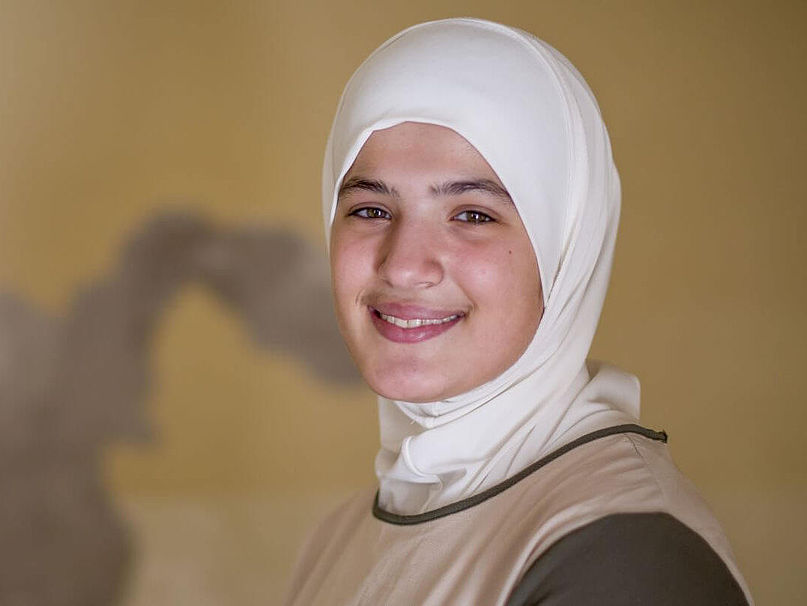
Dear G7 Leaders,
Home – what does this mean?
For the last nine years, my home is Zarqa, Jordan.
My real home, the place where I was born and spent the first five years of my life was suddenly destroyed. As a small child, one day, we just fled. We had no choice. We had to run from the bombing, the tear gas – and from where our home once stood - Dara’a in Southwestern Syria.
Life, home and school is now Jordan, and we are not alone. So many of us from our homeland are here, desperately trying to make new lives, fit in, feel included and start new lives. I want to return home even though I don’t remember it well. I want to become an architect so that I can rebuild my home for my mother, Hind Issa Mas’deh. This means that we can reunite as a wider family and be together again, not just speak on WhatsApp, knowing we are forever apart.
But Syria is not safe. After almost ten years of fighting, there are many attacks. Right now, everything is expensive, and it feels impossible to find a job, especially for women. I could We are not free – that world is still dangerous and uncertain.
At least here in Jordan, we are safe. My sister, Toqa, and I can go to school, finish our education, support my mother. My brother, Nader, has a good job – he is a restaurant chef.
I ask for support to help me return to Syria when I can – to have the same opportunities back there. Help us not to be marginalised, forgotten and isolated – we are willing to rebuild our lives and our homes. I may be only 15 years old but I am willing to work hard – please, give us the rights and protection we need to start again – give us the chance to learn new skills so we can build new, improved lives for our families and communities.
Yours faithfully
Marwa, Syrian refugee in Jordan
5 - Dalia aus dem Jemen
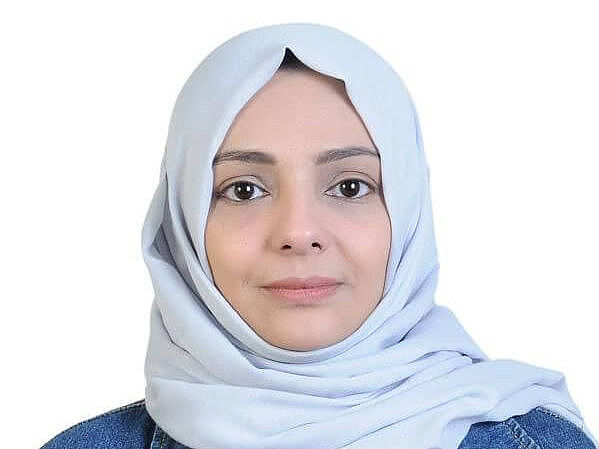
Dear G7 Leaders,
As you gather as world leaders and global decision-makers, as Yemeni women, we kindly request your attention for a moment:
Today, Yemenis continue to live through over 2,600 days of conflict. Our country has spiralled into economic downfall, a loss of some USD 90 billion in economic output. Statistics show that over 377,000 Yemeni civilians have lost their lives as a direct and indirect consequence of war. More than 4.3 million Yemenis have become internally displaced, many experiencing multiple displacement, living in hardship and not knowing when they can safely return home. Over 23 million people are in need of humanitarian assistance, with many on the brink of famine, including 2.2 million children and 1.3 million lactating and pregnant women. Poverty and socio-economic inequality are among the main outcomes of this protracted war, that deepens for women and girls. War has placed many women with the responsibility of running their households single-handedly with a world of burdens falling on their shoulders, down to their most basic needs.
Today, we speak on behalf of all women who carry these burdens and yet play pivotal roles in their communities. However, Yemen’s women-led organisations are seeing far too little backing and resources from international actors and yet we are proud to reflect on the achievements and the vibrancy we bring through our work. We work and deliver against a tide of hostilities and barriers but we nevertheless persist and navigate our way as only we know how.
Today, we want to apply a hopeful lens and try and put optimism into focus. On 2 June 2022, a fragile but welcome two-month truce came to an end and all Yemenis were delighted to see its renewal for a further two months. We have no doubt of our capabilities and our determination to see our families and youth enjoy this optimism too. All Yemeni eyes are now on the prospect of the next steps leading to durable solutions and a comprehensive agreement by parties to the conflict, for lasting peace.
At this critical juncture, therefore, it is imperative that women are NOT excluded from formal and meaningful roles throughout the UN-led peace process and in the future of Yemen. We are most affected by the war and should be at the heart and centre of finding solutions. Though we struggle to uphold our most basic rights, we are determined and driven by our desire to see Yemen being free of conflict.
We ask to be afforded the platform to have a voice and be at the centre of finding solutions.
We ask that any new peace solutions be gender sensitive, inclusive and our voices taken into account.
We ask that we are supported to be empowered to remain active, visible and impactful.
Today, we thank you for your attention and hope all Yemenis are in your thoughts.
Yours faithfully
Dalia Qasem Farea, CEO, Social Development Hodeida Girls Foundation
Co-signed by local organisations: Youth Leadership Development Foundation, For All Foundation, Generations without Qat, SOS Foundation for Development, Together We Rise Foundation for Women and Child Care, CARE in Yemen
6 - Ruma aus Bangladesch
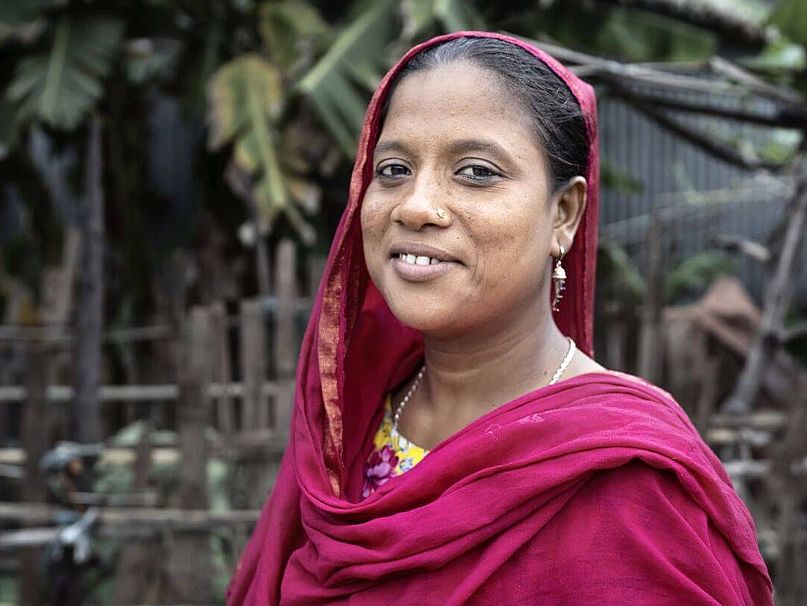
Dear G7 leaders,
Violence and harassment in the world of work is pernicious and disturbingly still ubiquitous. It is a violation of human rights with multiple knock-ons. It is one of the main drivers of the gender pay gap and of women’s lower participation in the workforce and can affect women at any stage of their working lives.
As a garment worker and President of a Community Worker Association in Gazipur, Bangladesh, I know first-hand the risks women face in the workplace. A shocking 80% of garment workers in Bangladesh have either seen or directly experienced sexual violence or harassment in the workplace. Globally, estimates suggest as many as 2 billion women have experienced sexual harassment at work. Fear of violence is also a huge barrier to women’s access to decent work. Minoritised groups are especially at risk since violence is driven by all power imbalances, not just those based on gender. Violence also breeds where there is defeatism and social norms that turn a blind eye.
The International Labour Organisation’s Violence and Harassment Convention (C190), which 129 governments voted for in June 2019 is an important tool that can help address injustices in the workplace. This ground-breaking treaty is the first international labour law that recognises everyone’s right to work free from violence and harassment. Strong and inclusive in scope, the Convention covers all workers, regardless of their contractual status, and regardless of where they are working. Whilst it rightly doesn’t apply only to women, it does identify women as being particularly vulnerable to violence and harassment. The Convention includes home-based workers in its scope; and it instructs governments and employers to take into account the impacts of domestic violence in the world of work.
While some countries such as the UK, Italy have recently ratified the Convention, we need all G7 countries to properly and urgently ratify and implement it too. This includes necessary changes in domestic regulations and ensuring high standards of prevention, protection and remedy from governments and employers. While this Convention is not ratified, buyers should look for compliant suppliers who adhere to protocols under C190 so workers within supply industries such as garment work in Bangladesh are protected.
That’s why I’m calling on the G7 countries to commit to ratify and implement C190 and ensure that women can exist in workplaces free from fear of human rights violation.
Yours faithfully
Ruma
7 - Hodan aus Somalia
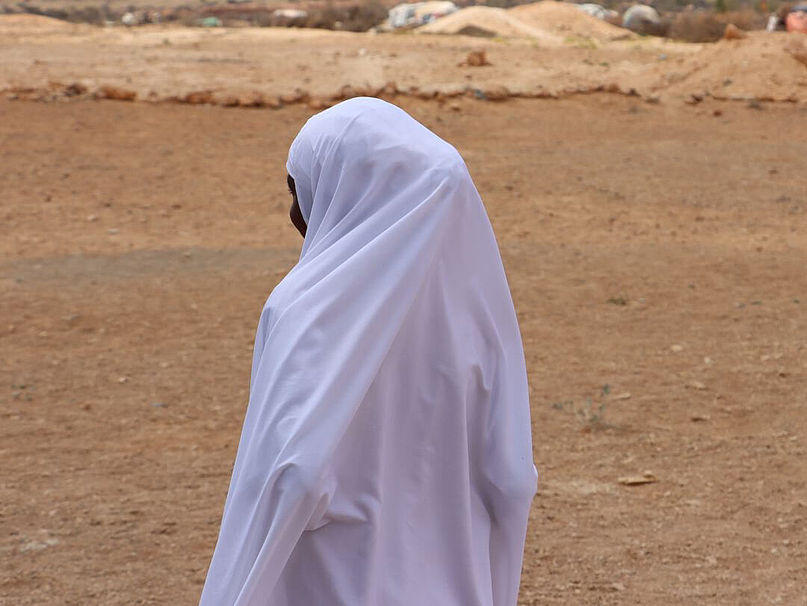
Dear G7 Leaders,
My name is Hodan Ibrahim. I am 15-years-old and I have two brothers.
I’ve always loved to learn. Going to school creates so many endless possibilities. Going to school, joining my friends and discovering more about the world. I used to attend Fadhiyar primary school, and I was in class three. I now no longer attend school though. Without education, I fear I’ll never been able to achieve my dreams.
We are pastoralists, and our livestock is the only source in our family. In our area, the drought-affected us as well, which forced me and my family to be displaced and resulting in me dropping out of school. Our family decided to take me with them and left my two brothers behind so that they can proceed with their education.
We then moved to the far rural areas in search of pasture for our livestock. Here there is no school, and life is hard. The impact of the drought has caused us many problems, including the loss of most of our animals and pressure on our livelihood.
Here in this rural place, life is different because I have many responsibilities. I support my mother with the house and domestic chores, and I am responsible for fetching water from a far area. Everyday, it takes me at least one hour to get there and an hour to come back.
Somalia has one of the world's lowest enrolment rates for children of primary school age and more than 3 million out-of-school children, meaning Somalia has one of the biggest global populations of out-of-school children. Girls particularly have always faced challenges to education with 72% of women in rural areas of Somalia having never attended school.
While efforts have been made to keep children like me and specifically girls in education, this drought and the daily chores I have to focus onto support my family is making the situation worse. Parents are taking their girls out of school as school fee costs are unattainable due to loss of income. Many families are now opting to only send boys to school but not girls like me.
I hope one day I will return home, go back to school so I can resume my studies and be with my friends once again. I miss playing with them. I love my education and want to continue my studies up to the university level. I want to be a teacher and educate other children in the future.
Climate change is making life difficult for so many people but it is devastating that it is disrupting education. My one ask of G7 leaders is that they help children, and especially girls like me, complete their schooling.
Yours faithfully
Hodan Ibrahim, Sanaag, Somalia
Erfahren Sie mehr über die Unterstützung von CARE für Frauen und Mädchen weltweit!


